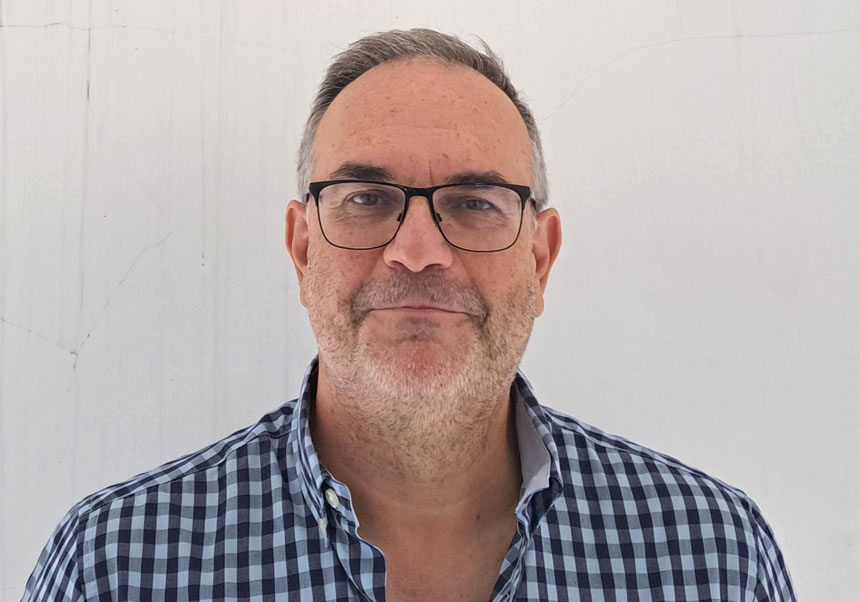
The Spanish Scientists Association (AEC) has distinguished the professor of the Faculty of Biological Sciences of the University of Valencia (UV) Sergi Maicas Prieto for his contributions in the field of teaching innovation in Microbiology, leading the projects Micromón, Tiny Earth and Small Word Initiative at the University of Valencia, as well as for his professional career in the field of scientific dissemination.
The AEC has made public the result of the XXV Edition of the Honour Plates for 2023, which rewards scientists, as well as entities involved in the advancement of science. Emerging researchers or others who, despite being notable, have not received due recognition, receive the plaques. Also companies that carry out scientific-technical research and innovation.
Sergi Maicas, professor of the Department of Microbiology and Ecology, has collaborated on sixteen books, and has published more than 50 articles and more than 100 presentations. As a scientific communicator he has participated in À Punt programs (collaboration in the preparation of documentaries), in the scientific dissemination platform The Conversation, National Geographic Spain and has been interviewed in media outlets such as Levante-EMV, El Temps, Las Provincias, Vilaweb, RTVE, COPE, SER and Agencia EFE, among others. His articles, works or references have been read in BBC News, as well as in Latin American media (NTN24).
Sergi Maicas’ teaching and dissemination work has focused on implementing the Small World Initiative/Tiny Earth/Micromón projects at the University of Valencia. These global or European projects, conceived at the University of Wisconsin-Madison in the United States, have made it possible to bring scientific culture and biomedical research closer to pre-university educational levels and promote the research vocation among secondary education and baccalaureate students of more than 50 educational centres in the Valencian Country.
With the participation of students and teachers from different faculties and departments of the UV and in close collaboration with teachers from secondary schools, the team co-coordinated by Maicas travels each year to the centres where the students begin a stage in the search for new antibiotic-producing microorganisms. These projects are complemented by other educational actions such as the Divulsuperbac, Superbugs and FagoVal projects, and training/retraining courses for secondary school teachers in which he also participates.
His dissemination work is complemented by more than 100 lectures in secondary schools, science weeks and other similar activities. We highlight the Microbiology workshops for boys and girls, and the introductory courses to Microbiology for older people and in rural environments.
In addition, Sergi Maicas is co-director of the Teaching Group for Teaching Innovation in Microbiology, of the Master of Research in Molecular, Cellular and Genetics Biology and of the SWI/Micromón project at the University of Valencia.
Awards ceremony
The awards will be presented on November 23 at 7 p.m., in the Assembly Hall of the University of Seville. Apart from Sergi Maicas, Santiago García Cremades, professor of Statistics at the Miguel Hernández University (UMH) of Elche, has been distinguished in dissemination. Other winners have been Amador Menéndez, researcher at the IDONIAL Technological Centre of Asturias; Isabel González, full professor of Crystallography and Mineralogy at the University of Seville; and María del Mar Malagón, full professor of Cellular Biology at the University of Córdoba. As an entity or company, the Geological and Mining Institute of Spain has been awarded.
The Spanish Scientists Association (AEC) was created in 1971 and since then it has promoted transfer, public-private collaboration, dissemination, ethics and integrity of research or the humanistic component of science as essential activities for the fair assessment of scientists on the part of society.







